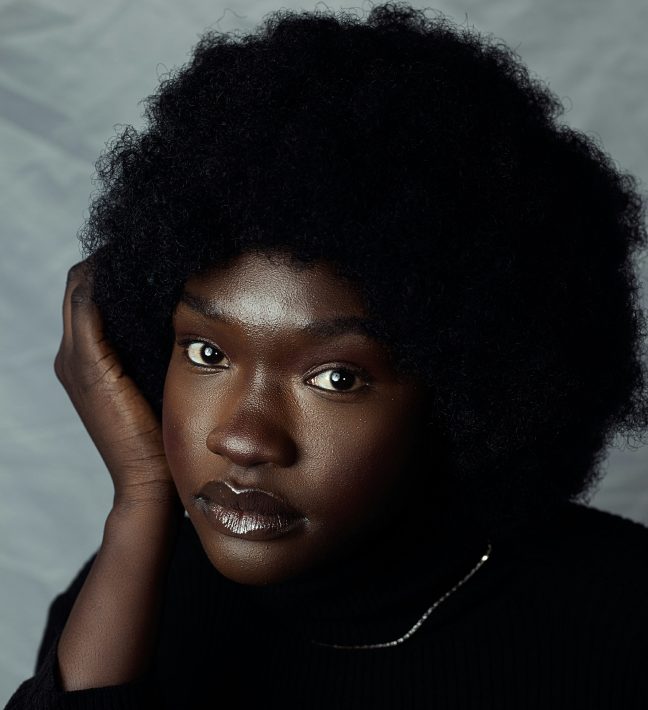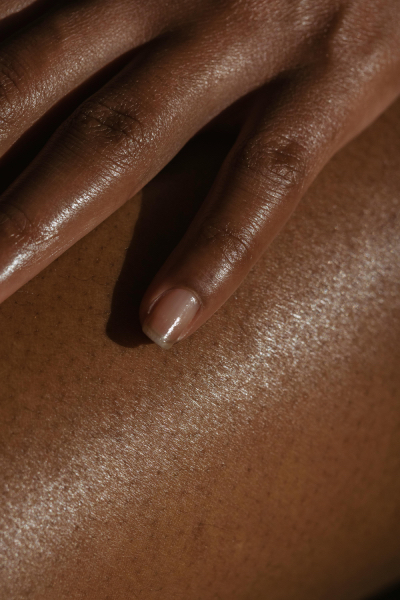Unfortunately, even in the 2020s, people with darker skin complexions still find themselves surrounded by myths and misconceptions. Many stem from a lack of education, research, cultural biases and historical prejudices. Not only do these myths perpetuate stereotypes, but they can also be incredibly damaging in terms of their impact on the health and self-esteem of individuals who have darker skin tones.
Let’s blow some of those myths out of the water and shed some light on the truth.

Myth 1: Darker skin doesn’t need protection from the sun
One of the biggest misconceptions about darker skin is that it is impervious to sun damage. First of all, whilst the melanin of darker skin does indeed offer some natural protection against UV rays, this does not mean that it isn’t at risk of sun damage. Those with darker skin tones can still experience hyperpigmentation, sunburn, and even skin cancer. It is essential to use a sunscreen with broad-spectrum protection regardless of skin tone.
Myth 2: Scars on darker skin heal perfectly
Some believe that darker skin heals flawlessly and doesn’t scar. The reality is that darker skin is actually more prone to some types of scars, such as post-inflammatory hyperpigmentation and keloids. Conditions like acne or improper wound care can, in fact, result in long-lasting marks on the skin. Proper skincare routines or, in some cases, professional scar removal treatment can help a person to deal with these conditions.
Myth 3: Darker skin doesn’t age
It would be fantastic if darker skin didn’t age, but “black don’t crack” is just another misconception; all skin ages regardless of tone. The big difference is that darker skin tends to show signs of aging more slowly because it has some natural UV protection and a higher collagen density.
The signs of aging, wrinkles and fine lines will still appear, and this is particularly true if the skin is not cared for properly. A good skincare routine will help you to delay those signs of aging, whether you have a darker skin complexion or not.
Myth 4: Darker skin is thicker
The concept that darker skin is more resilient is inaccurate. The opposite might be closer to the truth. Darker skin is more susceptible to some skin conditions, such as melasma and eczema. The use of harsh chemicals or over-scrubbing can exacerbate these issues.
Frustratingly, the myth can increase the use of these practices in response to skin conditions, inadvertently damaging peoples’ skin.

Myth 5: People with darker skin can’t get Melanoma
Melanomas can affect people regardless of skin tone; in fact, those with darker skin complexions have the lowest melanoma survival rates. This is in part because for those with darker-toned skin, melanomas tend to occur on parts of the body that are less exposed to the sun.
This means they are not spotted as quickly; therefore, advanced-stage diagnoses of melanoma are more common. It is important to check skin frequently for irregularity and seek medical advice as soon as possible.
What is the impact of these myths?
Unfortunately, belief in these myths and others surrounding darker skin complexions can result in neglect, incorrect skincare and even active treatments that are harmful to darker skin. Education is key when it comes to understanding that all skin types deserve care, attention and respect.
When we understand the truths surrounding darker skin complexions and identify the myths, we can truly appreciate their unique qualities. This means that we are better able to support the healthier skincare habits and routines that everyone deserves. If you have darker skin, it’s important to seek out treatment clinics with strong histories of working with people from varying backgrounds.
You might also enjoy reading about the importance of spf and ocean life/




